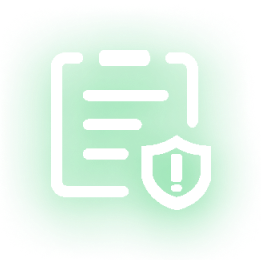Data privacy regulations aim to protect personal information from misuse while granting individuals control over their data. In the modern era, data breaches and privacy violations make headlines daily, governments worldwide are enforcing stringent data protection laws. From the EU’s GDPR to China’s PIPL, over 130 countries have enacted privacy frameworks. Businesses face a fragmented landscape of regulations recently, Non-compliance risks hefty fines, legal disputes, and reputation damage. This guide unpacks key global data privacy regulations and their implications.
Major Global Data Privacy Regulations
1. GDPR (EU/EEA)
Scope: Applies to any entity processing EU residents’ data, regardless of location.
Key Requirements:
Consent for data collection must be explicit, informed, and withdrawable.
Mandatory breach notifications within 72 hours.
Appoint a Data Protection Officer (DPO) for large-scale processing.
Allow data access, correction, and deletion (“Right to be Forgotten”).
Penalties: Up to €20 million or 4% of global annual revenue (whichever is higher).
2. CCPA/CPRA (California, USA)
Scope: Affects businesses handling California residents’ data with annual revenue >$25M or processing data of 50k+ users.
Key Rights:
Transparency into data collection and usage.
Let users opt out of data sales.
Limit data retention to “reasonably necessary” periods.
Penalties: Up to $7,500 per intentional violation.
3. PIPL (China)
Scope: Applies to all entities processing personal data in China.
Key Requirements:
Obtain separate consent for sensitive data (biometrics, health, financial).
Sensitive data must be stored onshore unless approved for export.
Store critical data locally and mandatory security assessments for large-scale data transfers.
Notify users and authorities within 72 hours of breaches.
Penalties: Fines up to 50M CNY or 5% of annual revenue.
4. LGPD (Brazil)
Scope: Mirrors GDPR but applies to businesses operating in Brazil or targeting Brazilian residents.
Key Requirements:
Appoint a Data Protection Officer (DPO) for high-risk processing.
Conduct risk assessments for data processing activities.
Obtain consent for data sharing with third parties.
Penalties: Fines up to 2% of revenue (capped at BRL 50 million annually).
5. PIPEDA (Canada)
Scope: Applies to private-sector organizations operating in federally regulated industries.
Key Requirements:
Obtain meaningful consent for data collection and explain purposes clearly.
Limit data use to the stated purposes (no secondary use without consent).
Allow individuals to access and correct their data.
Report breaches posing “significant harm” to the Privacy Commissioner and affected individuals.
Penalties: Up to CAD 100,000 per violation.
Proactive Compliance Strategies
Map data flows: Document where data is collected, stored, and shared.
Data classification: Classify data by sensitivity such as personal, health, and biometric and minimize data collection.
Update Privacy Policies: Clearly state purposes, retention periods, and user rights.
Automate Consent Management: Embed consent mechanisms into user interfaces. Track user preferences across regions.
Data Residency Solutions: Use geo-fencing to store data locally.
Train Employees: Ensure teams understand protocols for breach reporting and DSARs (Data Subject Access Requests).
Conclusion
In today’s interconnected digital landscape, complying with global data privacy regulations is more than a legal requirement—it reflects an organization’s ethical commitment to safeguarding personal information. Regulations like the GDPR, CCPA, and PIPEDA each reflect distinct regional values: EU’s rigor in obtaining explicit consent, Canada’s urgency in addressing breaches to minimize harm, and others that collectively redefine how businesses handle personal information.
Ultimately, the consequences of non-compliance go far beyond fines. A single lapse can erode customer trust, damage brand reputation, and hinder growth in competitive markets. Privacy compliance, therefore, isn’t about chasing ever-changing regulations—it’s about building systems that inherently respect individual rights while supporting innovation. Organizations that adopt this mindset won’t just stay compliant; they’ll lead in an increasingly privacy-conscious digital economy.
All features free for life for the first 500 users!
Sleep easy—your website is always protected!














